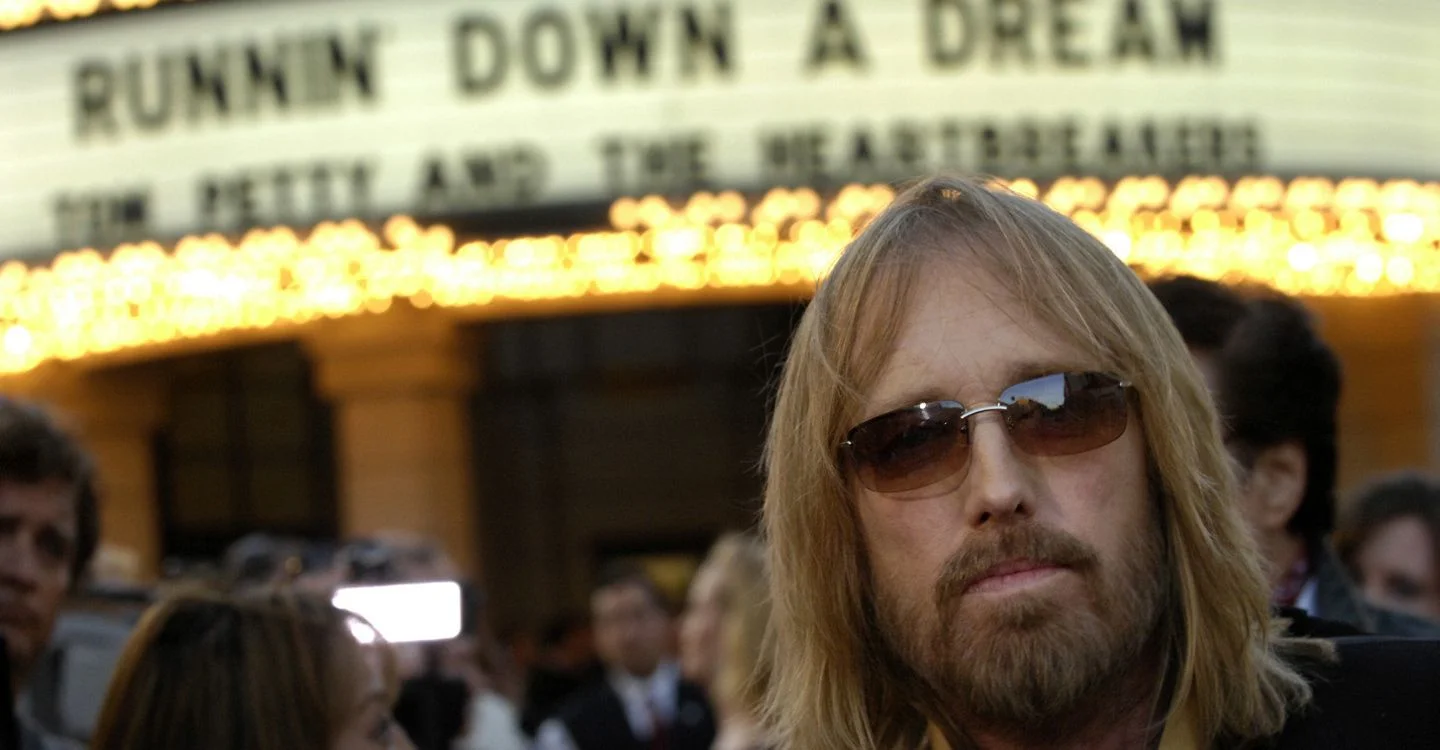"Tom Petty and the Heartbreakers: Runnin' Down a Dream" (2007) Review
I remember when I was growing up that there was a sort of game that my brother and I played with the radio when our parents were driving around. If my parents were listening to a classic rock station and the song "Last Dance With Mary Jane" came on, we'd ask my parents to crank the volume. Not because we were huge fans of the song, but because we thought it was such a hilariously on the nose song about smoking pot. That was the whole reason, and on reflection that was kind of where Tom Petty landed in my head for years. He was kind of a joke to me.
I don't mean that in an overly malicious way, but that's how I viewed him growing up. It's not that I thought he was a bad musician, it was just that I knew him as a guy who wrote songs like "Zombie Zoo," and when you're a kid, that's kind of funny (incidentally, I probably listened to "Zombie Zoo" a couple hundred times growing up). That surface level examination of Tom Petty's career more or less continued into my adulthood.
Until about a year ago when my dad started telling me that he'd found a documentary on Netflix about Tom Petty that he desperately wanted to see. Anytime my dad actually wants to watch a movie, I'm usually up for it. There's nothing more that I enjoy than watching something with someone else, so I strapped in for four hours to see Tom Petty and the Heartbreakers: Runnin' Down a Dream.
I put those three paragraphs in there to really show how powerful Peter Bogdanovich's documentary truly is in the fact that after watching all four hours of Runnin' Down a Dream, my opinion of Tom Petty completely changed. I see him as nothing less than one of the fiercest artists that ever entered mainstream music, the true definition of the man who never took "no" for an answer. That doesn't mean he was a brute or that he was cruel, it meant that he felt he had found a calling in music and damn anything else.
To be entirely fair though, one other major factor clearly ruled Petty's life: Luck. The story alone in the second half about the formation of The Traveling Wilburys, the country rock super group featuring Roy Orbison, George Harrison, Bob Dylan, Jeff Lynne, and Petty himself, is literally the most coincidental story I've ever heard in the history of entertainment. If you tried to pitch a screenplay about how the The Traveling Wilburys formed, you'd get kicked out for making up something so implausible.
Normally saying a documentary is four hours long would be a caveat but here it's a blessing. You almost wish there was more material by the end, but the documentary has a pretty good pace. It's more or less split in half with a sort of built in intermission (it was originally released on DVD split into two parts, but on Netflix it's presented without pause). Tom Petty's story and the stories of everyone around the Heartbreakers easily fill those four hours.
Some of the stories are wild and fun as Petty traces his southern roots into Los Angeles. Some of them take on a much darker tone as various members of the group struggle with various addictions to different abusive substances. All of them are really interesting though, if a bit self-indulgent at times. Call this a stereotype though, but since most of the members have southern roots, they're damn good storytellers. It's kind of the perfect storm of a music documentary.
The final element of that perfect storm that makes Runnin' Down a Dream exceptional though is the archive footage used throughout. Most music documentaries made in retrospect like this are severely limited in what footage they can actually show, usually opting to film stylish recreations of moments throughout their careers. I don't know where they found most of this footage (and in some cases, why a camera was present at all), but thank the lord they did. The sheer amount of real archive footage is astounding. It's one thing to hear Tom Petty tell a story about interrogating a record producer about why he was making a friend of his record "a bad song," it's a whole other thing to actually see Petty uncomfortably confront him.
Oh, and there's the music. Tom Petty and the Heartbreakers undeniably wrote some of the most famous mainstream American music of the 1970s and the 1980s, and this documentary exhaustively covers all of it, down to the band's original incarnation as Mudcrutch. There's so much to talk about here, about how Tom Petty and the Heartbreakers toured with Bob Dylan, about the unknown arsonist that set Petty's house on fire, about Petty's legendary legal fight against the record industry that literally almost brought the whole enterprise to its knees.
But Tom Petty, the Heartbreakers, and Peter Bogdanovich's expert construction tell those stories better than any review ever could. With Tom Petty's sudden passing, I think there could be a whole generation of people out there like me that don't have the context for Tom Petty's career and only know him for a few songs like "Free Falling," "Refugee," and others. I'm glad I understand the larger significance of his career and I'd beg anyone with four hours to spare to take the time and watch this behemoth of a documentary.
And while I've already said this in other places, I don't think I can say it enough:
Rest in Peace, Tom Petty.



